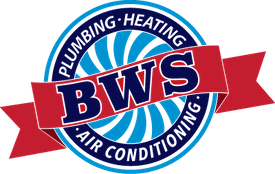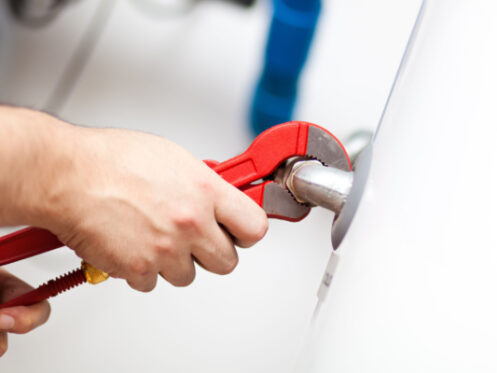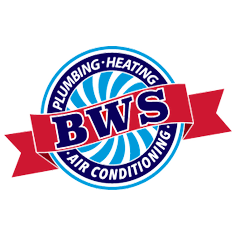Having a pipe burst in your Twin Cities, MN, home is an absolute nightmare. Not only do burst pipes render plumbing unusable until repairs are complete, but they can also cause tremendous amounts of property damage. Fortunately, there may be ways to detect and mitigate an oncoming pipe rupture before disaster actually strikes. Following are four signs that your pipes will burst along with ways to tell if they’ve burst already.
1. Your Hot Water Is Running Cold
If you turn on the tap and get a judicious stream of cold water even though you rotated the hot water knob, you might assume that your water heater is malfunctioning. However, during times of freezing temperatures, getting cold water despite having selected hot is a strong indication of freezing pipes. When pipes freeze, the water that’s trapped inside them gradually expands. If this expansion exceeds the limitations of your pipes, your pipes will eventually burst.
A cold water flow that never heats up means that there are already significant build-ups of ice within the pipes. As running water passes through these developing blockages, its temperature drops. One way to prevent further problems is by keeping the tap on and letting the water continue to flow until the outside temperature rises, or until all trapped ice melts. If you can locate the pipes that are freezing over, you can also use external sources of heat to warm them up. However, when freezing pipes are a fast-developing issue, it’s best to call a plumber in before they actually rupture. Using blow torches and other direct sources of high heat can cause more harm than good. This tactic is also a serious fire hazard for the entire building.
2. The Exterior Pipes are Coated in Frost
Build-ups of frost on exterior pipes is never a good sign. If your pipes are cold enough to freeze on the outside, they’re cold enough to freeze within. One of the best ways to prevent frost coverings and the potential for pipe ruptures is by insulating all exposed pipes at the exterior of your home. This is a job that’s best done before outside temperatures plummet. It’s a project that you can tackle on your own, but it’s often cheaper and far more effective to pass it on to a plumber instead. We can make sure that the right insulating materials are used for providing reliable, long-lasting protection.
3. The Flow of Water Is Inconsistent
In addition to getting consistently cold water when you turn the tap on, you may notice uneven and fluctuating water pressure. If you’re trying to take a shower, you’ll have to deal with both the unpleasant shock of icy water and the frustration of toggling between a steady stream and light sputters. Uneven water pressure is another sign that ice is forming within your pipes. It means that moving water is having an increasingly hard time getting through these blockages.
To mitigate this issue, keep the shower or tap running and raise your thermostat setting to warm up your home. Even if freezing pipes are located outdoors, residual heat from the exterior walls may help thaw them out. At the very least, this heat could slow or stop the freezing process.
4. Your Pipes Are Suddenly Very Noisy
Cold temperatures and freezing, expanding water aren’t the only causes of pipe ruptures. Banging, clanging, gurgling and hissing aren’t normal pipe noises. In fact, they may be an indication of serious, age-related problems that will eventually lead to burst pipes. If turning your water on causes your plumbing system to release a cacophony of sounds, give us a call. Catching and correcting age-related wear before local temperatures take a seasonal dive could spare you the headache and hardship of baling water out of your home.
Burst Pipes Aren’t Always Easy to Detect
Ruptured pipes don’t always flood homes with water. In fact, it’s possible to have a ruptured pipe go unnoticed on your property for quite some time. Depending upon the location of the pipe and the magnitude of damage it’s sustained, it may leak water for weeks on end before you even notice it. Thus, while knowing how to identify the signs of an impending burst pipe is important, it’s equally critical to recognize the signs of an existing pipe failure.
The same banging, clanging and whistling sounds that indicate a potential pipe rupture could be signalling a problem that has already happened. Try to locate where the sound is coming from. Put your ear close to the wall and listen for dripping or running water. Check the area for wet drywall, blistered paint or water marks. Be on the lookout for mold. Search for warped flooring or baseboards that have started to pull away from the wall. Although scheduling a whole-house plumbing inspection is the easiest and most effective way to identify slow and hidden leaks, building materials at and around the affected area can alert you to trouble as well.
When pipes burst, water is no longer being efficiently routed into or out of the home. If you have a ruptured supply pipe, you’ll probably get little more than hissing noises when you turn on the related tap or a slow trickle. Sometimes, slow trickles are followed by forceful blasts of water that rapidly taper off. You may notice your water looking muddy, cloudy or full of sediment. It may have an off-putting taste and a foul odor.
Ruptured pipes outside of the home could leave your yard soggy, sunken and foul-smelling. If you have a ruptured outdoor pipe during spring or summer, you might see flies, mosquitoes or other insects congregating in the area. You may even notice a proliferation of new growth in the surrounding grass or an abundance of weeds.
What to Do If You Have a Burst Pipe or a Pipe That’s About to Burst
Pipes that haven’t yet burst but are already showing the signs of freezing should be kept as warm as possible. If you can turn on the tap, let the water flow until help arrives. It’s also a good idea to increase the building’s internal temperature and to cover exposed pipes with either insulation or a warm towel.
If a pipe in your home has already ruptured, turn off the water at the water main. You’ll likely find this valve in your crawlspace, in the basement or close to your water heater. Turning the water off will limit pressure inside the plumbing system and minimize water damage as frozen water melts. It’s also a good idea to turn off your electricity to eliminate the risk of electrocution. This is especially important to do if water from the ruptured pipe can potentially breach your circuit-breaker box or fuse box.
We’ve been proudly serving residents of Twin Cities and the surrounding area for more than 40 years. We offer heating, cooling and plumbing services. We also provide leak-detection services and water heater repairs. If you think you have a burst pipe in your home, call BWS Plumbing, Heating & Air Conditioning now.



